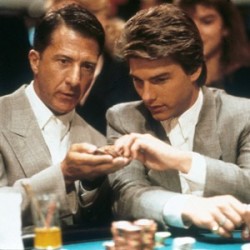Card Counters Are Not The Casinos’ Main Threat

Cheating can be costly for casinos, but an industry expert recently shared a surprising fact that it’s not lone card counters that dealers should be on the lookout for. This expert, Eliot Jacobson, the president and founder of Jacobson Gaming, explained that card counters can typically walk away with only small profits from their antics, winning an average of $22 per hour for their time spent at the tables, while other less-focused-on forms of cheating can cost upwards of a thousand dollars per hour.
Edge Sorting
One costly technique considered to be cheating by the casinos is known as edge sorting. For years, casinos failed to properly educate their staff about its threat, which subsequently allowed professional card players to walk away with thousands of dollars in gains.
Edge sorting involves studying the markings on the backs of popular types of playing cards and familiarizing yourself with unintentional imperfections and variations that can provide clues as to what types of cards are in play. During a game like baccarat or three card poker, it’s possible for the players to sort the cards, and identify them from looking at their backs, thus increasing their chances of winning by around 21 percent.
One of the most highest profiles examples of this technique in action involves professional poker player Phil Ivey, who is one of the most successful pros in the game having earned countless millions of dollars and 10 WSOP bracelets during his illustrious career. In 2012, Ivey won around $11 million playing Punto Banco at Crockfords in London, but subsequently had his winnings withheld, with the casino’s decision later upheld in a British court. As Ivey explained at the time:
“I believe that what we did was a legitimate strategy and we did nothing more than exploit Crockfords’ failures to take proper steps to protect themselves against a player of my ability. Clearly today the judge did not agree.”
Ivey is also believed to have used the same technique against the Borgata Casino in Atlantic City to win $9.6 million playing baccarat, with the case expected to be heard later on this year.
The Lucky Idiot Scam
Another common and costly form of cheating is the Lucky Idiot. With this scam, a player approaches the table and makes wild bets while acting as if they are simple-minded and reckless. When they win, they make a fuss and act surprised, endearing them to the staff. This causes dealers to let their guard down and miss out on the clues that cheating is taking place. Usually with this type of scam, there are spotters positioned in various parts of the casino, taking in play from different angles. They communicate with the lucky idiot either through hand signals or an ear piece, telling them which plays to make.
Hole Carding
Hole carding is a very difficult to spot form of cheating, particularly when it is executed by a skilled team. With this scam, spotters position themselves to try to see the hole card that the dealer is holding. When the card is spotted, the player receives a signal or message letting them know how to bet. The reason why this type of cheating can be tricky is that normally spotters are not able to see the hole card every hand. This leads to the cheating player losing and winning, throwing off suspicion.
Ace Sequencing
Another technique called Ace Sequencing involves a player memorizing a few cards placed near to an ace in the dealers discard tray, and then using those key cards later to determine when an ace is likely to be dealt. As Jacobson explains:
“These advance plays are.. very hard to detect even if you see the person doing it right in front of you. A lot of people make crazy bets and play in crazy ways. Players seem to be getting even worse at the game over time [making it hard for supervisors] to pick out the particular bad play that corresponds to some type of advantage play.”
Conclusion
Studies have found that these types of cheating techniques can earn skilled criminals an average of $200 to $2000 per hour with casinos never suspecting that anything is going on. Jacobson’s company, Jacobson Gaming, is trying to change that. His business conducts training sessions for casino employees that educate them about these more costly types of cheating and provides them with the opportunity to practice identifying the scams during simulated play. With Ivey’s case having garnered so much media attention, it’s likely that many casinos will begin using his service or similar ones to combat cheating.








